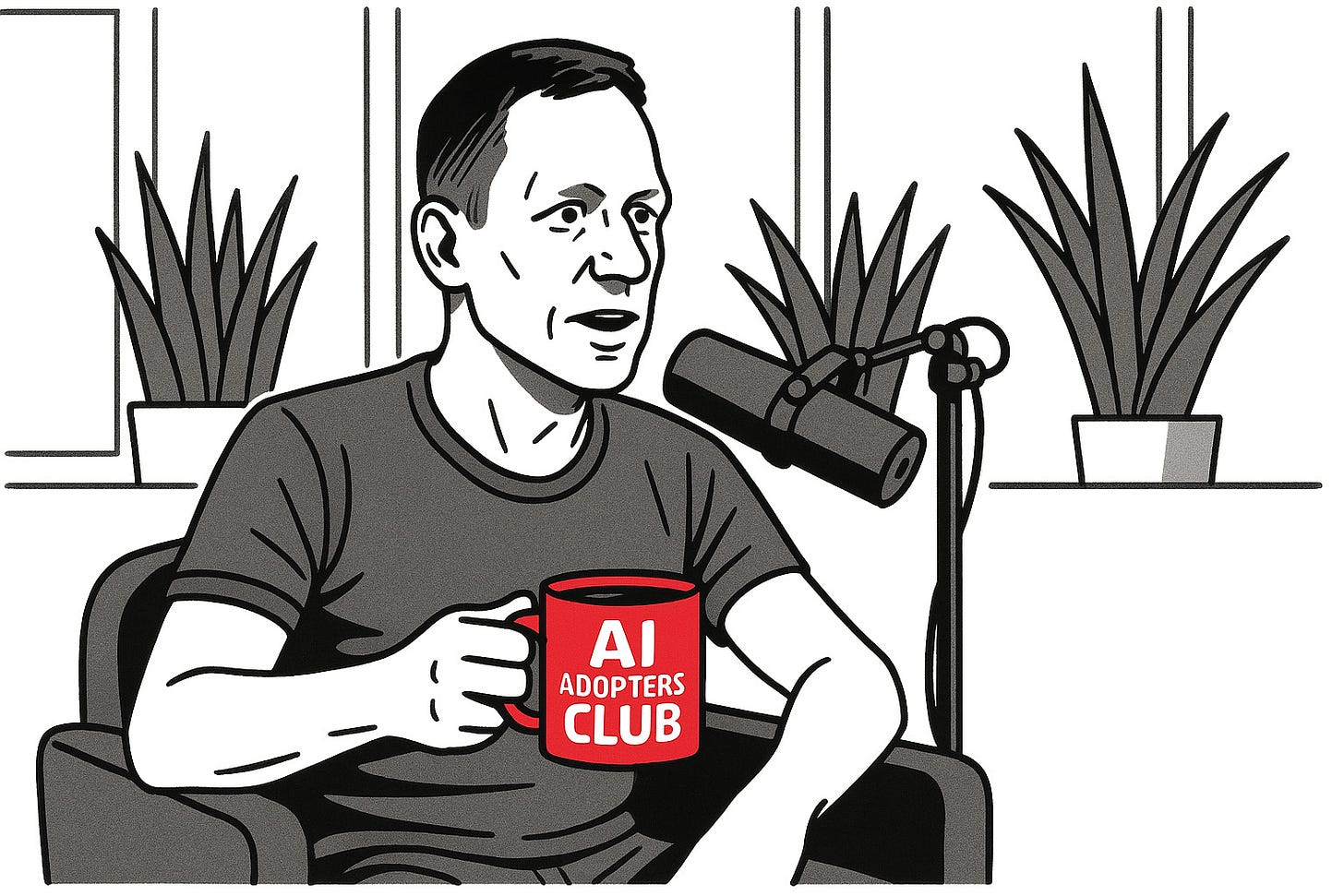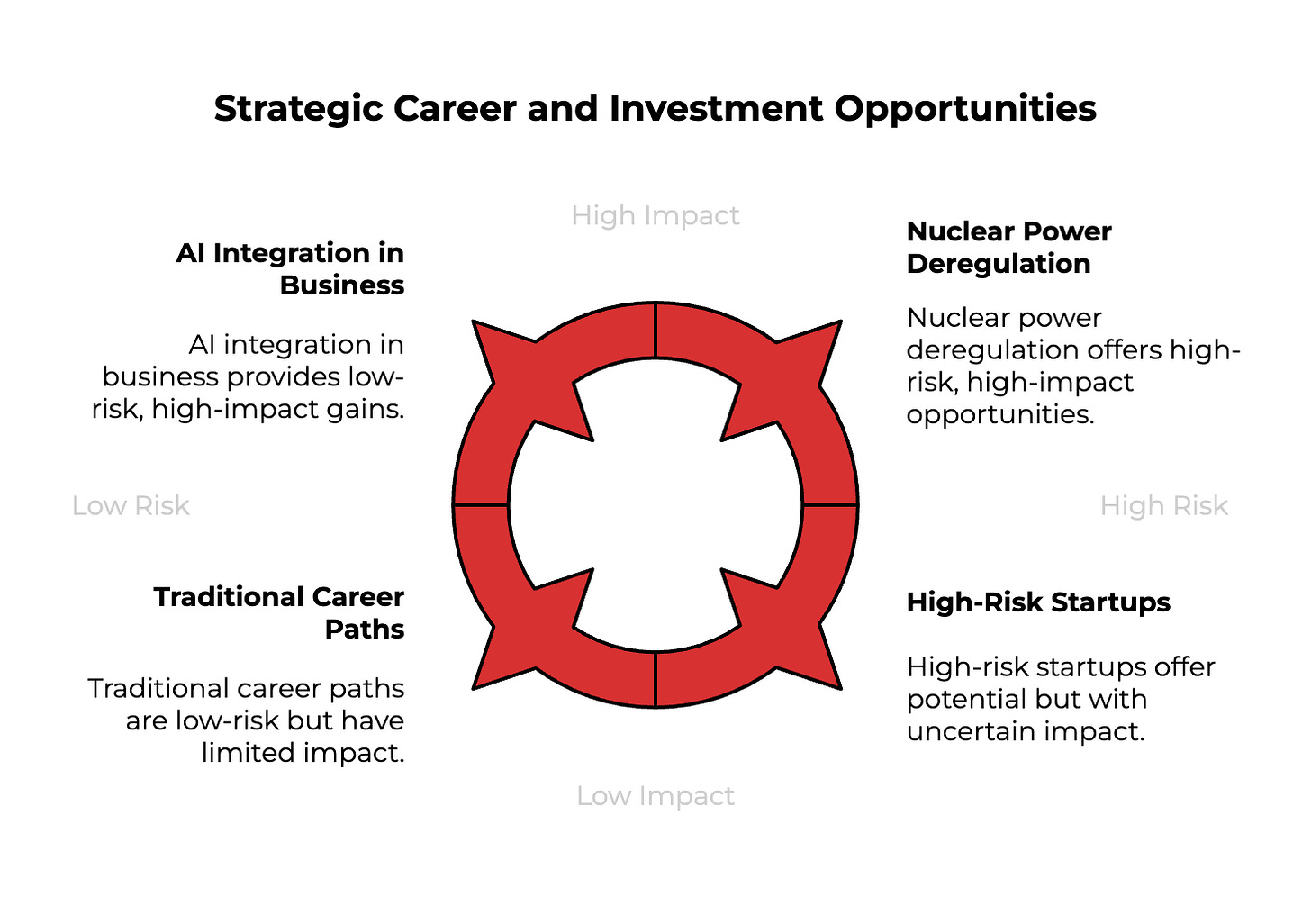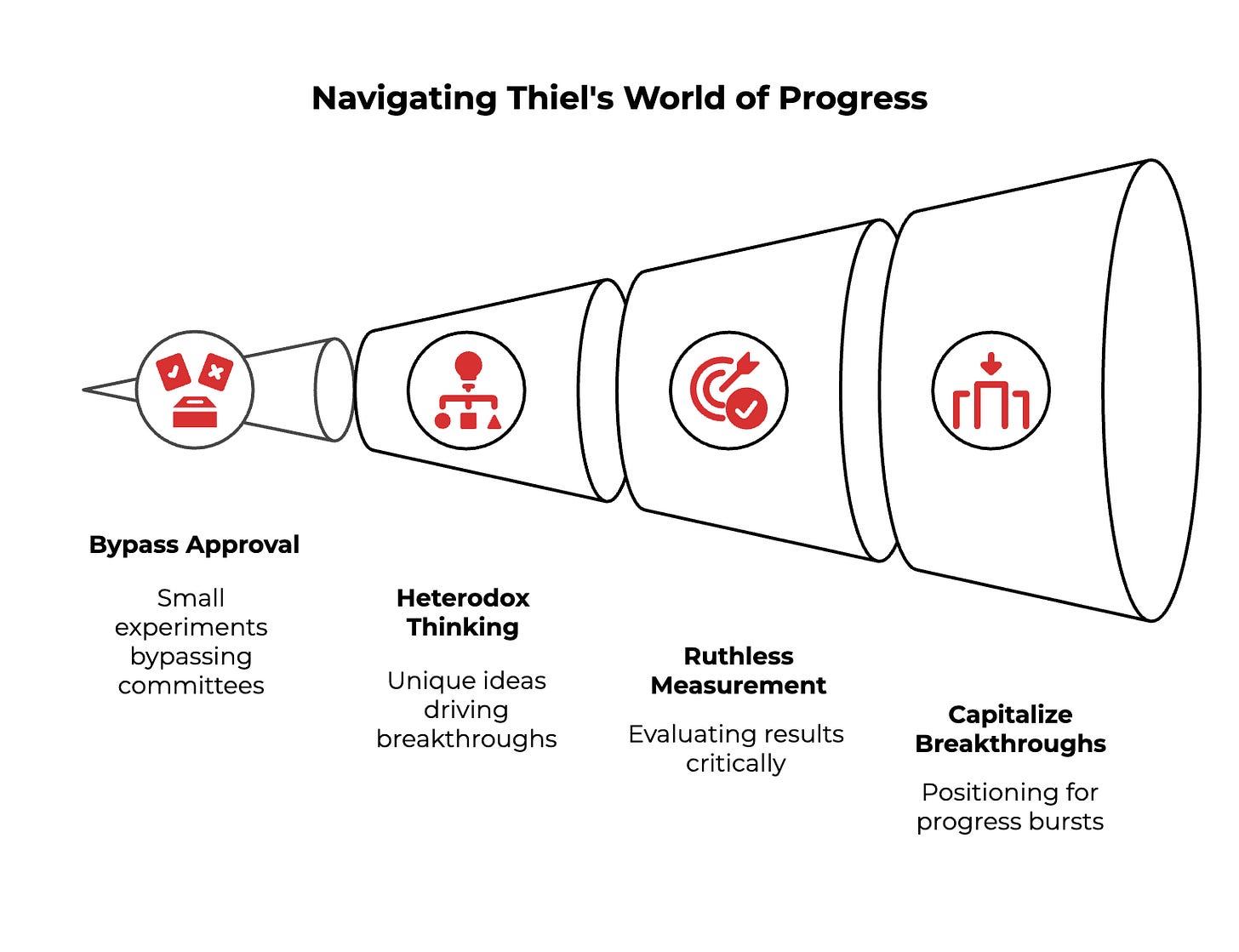Why Peter Thiel Thinks Your Industry Is Stuck
And the three career moves that matter when progress has stalled
Hey Adopter,
Peter Thiel just dropped a bombshell that every ambitious professional needs to hear. The billionaire who predicted tech stagnation 15 years ago still believes we're stuck, and his latest insights reveal exactly why your company's "innovation initiatives" keep failing.
This isn't about Thiel's politics or his billions. It's about understanding the structural forces that determine whether your career accelerates or hits a wall. You'll walk away with a framework for spotting real opportunities in a world of fake progress.
The Uncomfortable Truth About Progress
Thiel's core argument cuts through corporate optimism like a knife. Despite all the AI hype and digital transformation budgets, he maintains we're living through "generalized stagnation" that started in the 1970s.
His evidence hits close to home. Put a 30-year-old millennial next to their Boomer parents at the same age, and the economic reality is stark. Living standards haven't kept pace. Career trajectories have flattened. The middle class, which Thiel defines as "people who expect their kids to do better than themselves," is disappearing because that expectation no longer holds.
Here's the part that should worry every manager reading this. Thiel points out that our institutions now require "more and more and more" investment "to get the same returns." Sound familiar? That's your company throwing budget at digital transformation projects that deliver marginal gains. That's your team adding more stakeholders to get basic decisions approved.
Where the Real Opportunities Hide
But Thiel isn't just diagnosing problems. He's revealing where smart professionals should place their bets.
AI Is Real, But Temper Your Expectations
Thiel sees AI as "roughly on the scale of the internet in the late 90s." Significant, but not civilization-changing. This means AI will create valuable companies and boost productivity, but it won't solve the deeper institutional problems choking progress.
Translation for your career? Don't bet everything on becoming an "AI expert." Instead, position yourself as someone who can deliver measurable business results using AI as one tool among many.
The Risk-Taking Advantage
Here's where it gets interesting. Thiel argues we should "take a lot more risk" because our institutions have become pathologically risk-averse. While your competitors are paralyzed by compliance frameworks and committee approvals, massive opportunities exist for individuals willing to experiment.
This isn't about reckless gambling. It's about recognizing that in a stagnant environment, even modest calculated risks can deliver outsized returns because so few people are taking them.
Deregulation Creates Winner-Take-All Moments
Thiel specifically mentions nuclear power deregulation as a coming wave. But the pattern applies everywhere. When industries stuck in regulatory capture finally break free, early movers capture disproportionate value.
Watch for sectors where political winds are shifting away from safety-first thinking toward results-first execution. The smart money follows deregulation.
Your Strategic Response
The professionals who thrive in Thiel's world understand three things their colleagues miss.
First, institutional momentum works against you. Your company's "innovation lab" and "digital transformation roadmap" are proba
bly performance theater. Real progress happens around the edges, in small experiments that bypass committee approval.
Second, conventional intelligence isn't the bottleneck. Thiel notes that "heterodox smart people" doing "crazy experiments" drive breakthroughs. This means your differentiation comes from thinking differently, not just thinking better.
Third, the window for action is narrow. Thiel warns that societies can't sustain stagnation indefinitely. Either we break through to renewed progress, or our institutions collapse under their own contradictions. Neither scenario rewards people who played it safe.
The practitioners who build careers on these insights don't wait for their organizations to embrace risk. They create small-scale experiments, measure results ruthlessly, and scale what works. They focus on solving real problems rather than optimizing for internal politics.
Most importantly, they prepare for a world where progress happens in concentrated bursts after long periods of apparent stagnation. When the breakthrough moments come, they're positioned to capitalize.
Adapt & Create,
Kamil







Look, it used to be simple. Obvious, even. Up until maybe the mid-2000s, business logic was dead straightforward: your team builds something real, something that sells, or you're out. No one paid you to vibe. The whole chain—from engineers to sales—had to be tight. Managers weren’t MBA influencers; they were former engineers who actually knew what the hell was going on. Budgets were tight, headcount was lean, and if you weren’t essential, you weren’t there.
Then around 2007, two things collided. First, the iPhone dropped—and suddenly, people lost their minds. They started believing in fairy tales. Thought if you dressed like Steve Jobs and waved your hands around dramatically onstage, the universe would just... deliver innovation. Like cargo cults with black turtlenecks.
At the same time, the market got flooded with absurd money. Private equity, VCs—firehosing cash at anything that looked vaguely “disruptive.” If you squinted and looked sorta like Jobs, congrats—you just got a funding round the size of Serbia’s GDP.
That’s when it all went sideways. Execution stopped mattering. Mimicking genius replaced being competent. Image devoured function.
And now, twenty years deep into that delusion, the cheap money’s gone. Interest rates are real again. And suddenly, folks are remembering: oh right, you actually have to *do* something. Not just pitch it. Welcome back to reality.
I found myself nodding through most of this, especially the critique of “performance theater” in corporate innovation. But I want to push back gently on one part. Thiel tends to underplay how much even small experiments often rely on institutional support. I have seen plenty of breakthroughs die not from lack of courage but from lack of patient backing. I think risk-taking matters, but so does building leadership willing to tolerate failure and learn from it. Thanks for the great reading!